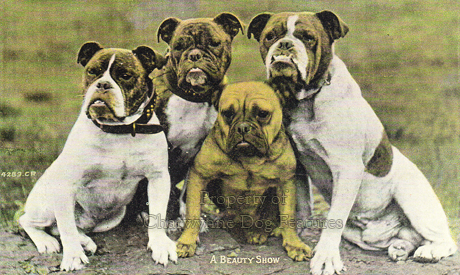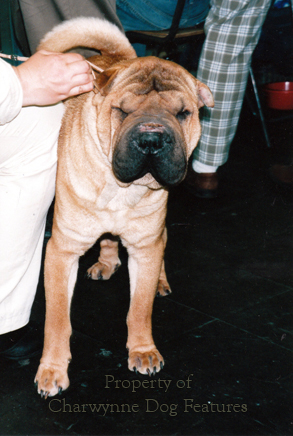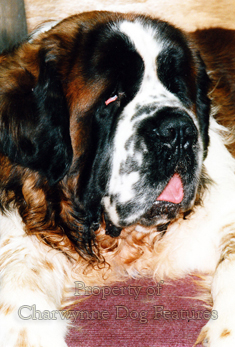486 Promoting Responsibility
PROMOTING RESPONSIBILITY
by David Hancock

 Five years ago, I wrote an article for Country Life which was highly critical of the Kennel Club. The editor entitled it 'Is the Kennel Club going to the Dogs?' The graphics department illustrated the piece with a drawing of a dog cocking its leg against the KC's entrance and with a 'pin the tail on the Dobermann' drawing. These illustrations, as well as the words of the article they reinforced, summed up what was a common despair over the performance of that club in the years preceding that time. Some of my then criticisms remain, but I give credit to the KC for trying to put their house in order: for at least trying to backtrack on the discredited Dangerous Dogs Act, which they helped to frame, for trying to raise the standard of judging, for attempting to promote better breeding, for striving to counter harmful wording in breed standards, for trying to expand membership and, especially, for promoting health schemes in every breed. Better late than never.
Five years ago, I wrote an article for Country Life which was highly critical of the Kennel Club. The editor entitled it 'Is the Kennel Club going to the Dogs?' The graphics department illustrated the piece with a drawing of a dog cocking its leg against the KC's entrance and with a 'pin the tail on the Dobermann' drawing. These illustrations, as well as the words of the article they reinforced, summed up what was a common despair over the performance of that club in the years preceding that time. Some of my then criticisms remain, but I give credit to the KC for trying to put their house in order: for at least trying to backtrack on the discredited Dangerous Dogs Act, which they helped to frame, for trying to raise the standard of judging, for attempting to promote better breeding, for striving to counter harmful wording in breed standards, for trying to expand membership and, especially, for promoting health schemes in every breed. Better late than never. 
There will always be a need in dogdom for the promotion of responsibility, ideally an official authoritative voice. Such a voice seems to exist in the United States and is called the American Kennel Club. One of its senior executives is reported to have said on more than one occasion: "You should not ask what the AKC is doing for you but ask what you can do for the sport of dogs". That sounds like moral leadership to me; the mandate of improving dogs shouldn't reside in boasting of how many have been registered or entered for shows.
This unusual individual is also alleged to have said: "We (the AKC) stand squarely behind the fact that people should not breed dogs for profit; they should breed only to improve the breed". This particular club seems to have a moral dimension to their activities. But they don't just talk, they act too; in 1992 they struck off 240 breeders after conducting 3,400 inspections in the year. This illustrates very neatly the difference between executives and bureaucrats -- the latter are only able to see the difficulties in taking action, to accept excuses, to avoid accountability, to ask for further reports and to arrange yet another committee meeting. 
An experienced bureaucrat can find endless reasons why carriers of inherited diseases should not be de-registered, why litters from puppy farms should not be refused registration and why it is inadvisable to admit how foolish you have been to sit at the same table as gormless legislators devising laws to punish breeds rather than deeds. A really professional bureaucrat can pass responsibility, almost imperceptibly, downwards -- to breed clubs, for example. What is really needed is leadership at the top!
I am concerned that dogs are still being adversely affected by this chronic reluctance by any national canine organisation to be prepared to provide moral leadership in these testing times. Dogs are themselves being penalised because of the lack of mutual respect in the wide-ranging world of the domestic dog. Breeders are not listening to what geneticists are telling us about genetic defects. The inspired work of the ISDS in reducing the incidence of PRA in working sheepdogs has not been mirrored in the pedigree dog world. The considerable apathy of many breed societies over issues such as docking and dangerous dog legislation is not particularly admirable.
Each canine organisation, wherever based and however small, assumes, immediately it is established and whether it wants to or not, a moral responsibility for dependant living creatures embraced by their span. A small club can make disproportionate impact by vigorous lobbying and linking with others. But how much more effective their action would be if there were a virile campaigning central organisation, with a strong sustained moral motivation, pulling all interests together so that one even more powerful voice could really be heard. Until then, it is left mainly to strong-minded individuals to exercise whatever influence they can as guardians and catalysts for change. But is that truly the best deal we can collectively obtain for our dogs? Do they not deserve better?
How many breed clubs have a health sub-committee? How many clubs and societies achieved a satisfactory response to the Kennel Club's admirably-intentioned request for health survey returns? Tell me of a breed club which takes action to expose the over-production of puppies by someone in their breed? And tell me too of a breed club which doesn't look the other way when unworthy champions are created and then unjustifiably used in breeding plans? Every breed club is registered with the KC. Why isn't it a condition of obligatory registration for such matters to be addressed? Responsibility isn't just a commitment for those in positions of power; it is needed at every level all the time. The world of dogs should never be like Ronald Knox's famous description of a baby: a loud noise at one end and no sense of responsibility at the other.